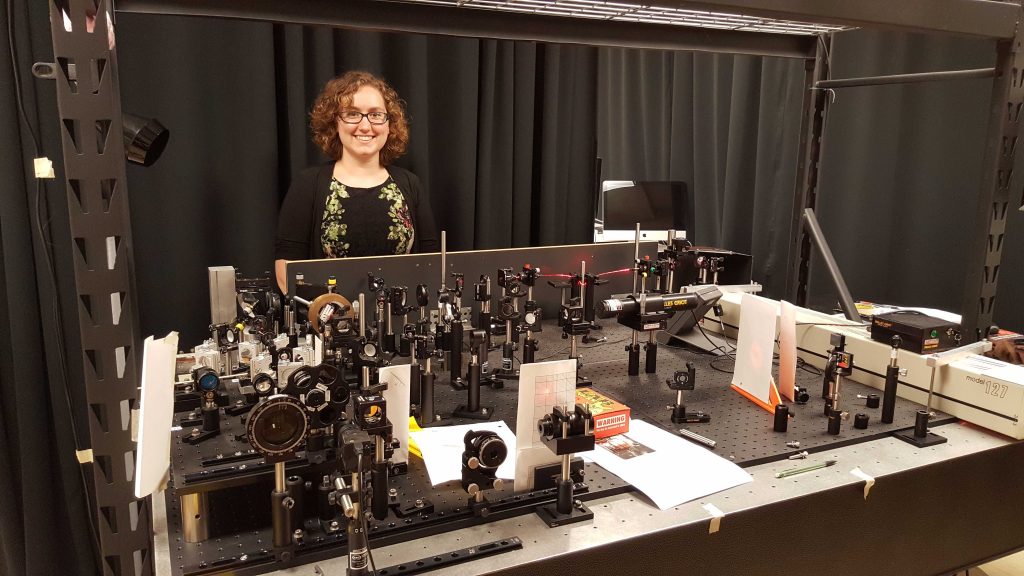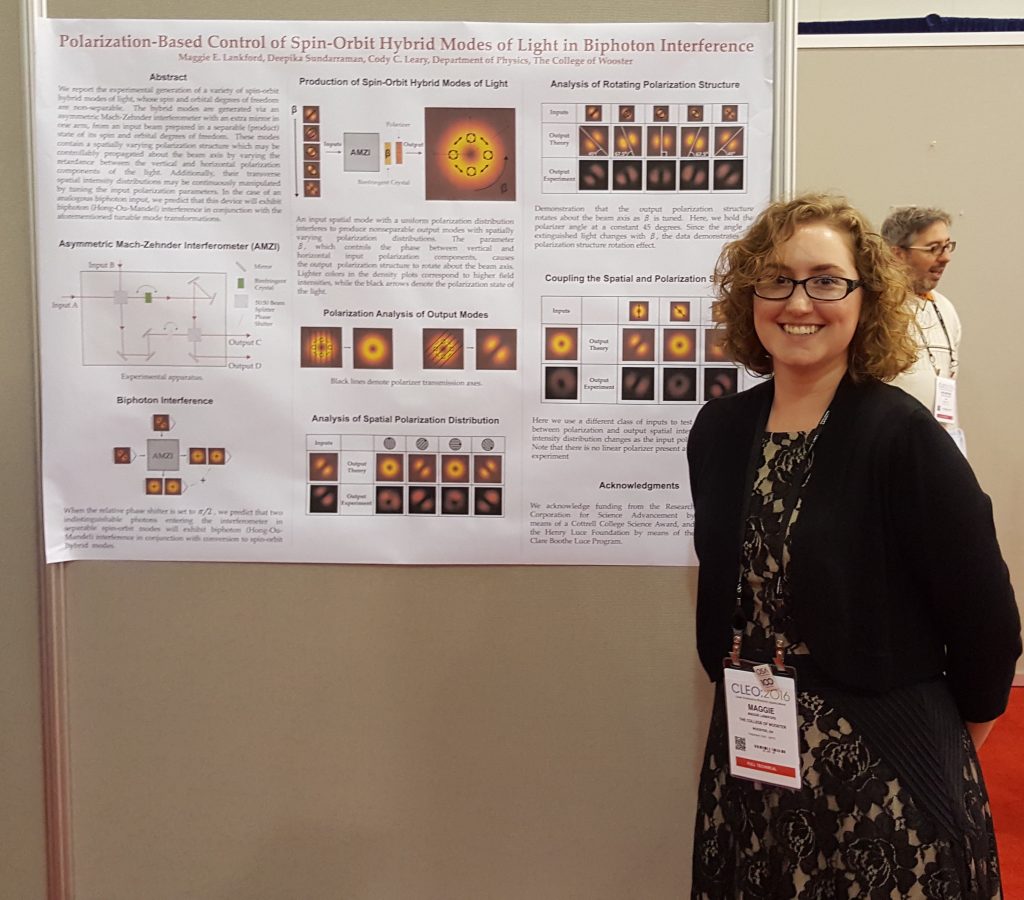I’m excited to report that Maggie Lankford, who graduated summa cum laude this year as a Wooster physics major, has been selected as a finalist for the American Physical Society’s LeRoy Apker Award– known as the preeminent honor for undergraduate physics research in the United States! Maggie received this recognition for work reported in her Senior Independent Study thesis, entitled “The Production and Manipulation of Nonseparable Spin-Orbit Modes of Light Under Hong-Ou-Mandel Interference Conditions.”

In short, Maggie built a device which produced novel structures of light (photons), in which two of the light’s degrees of freedom–polarization and spatial intensity distribution–could not be characterized or described without direct reference to one another. Her thesis also demonstrated that this setup is capable of imparting such structures onto pairs of photons that are simultaneously exhibiting quantum interference, which is a key component in a number of quantum computing protocols. If you’d like to know more, just click this link to our open-access publication, which recently appeared in the research journal Optics Express.
Maggie presented her work last June at a poster session at the Quantum Electronics and Laser Science conference in San Jose, CA (see photo above). Then in August, she gave an oral presentation on her research before the Apker Award selection committee in Washington, D.C., along with the six other finalists from other institutions including MIT, Kenyon and Dartmouth. Two winners – one from a Ph.D. granting institution and one from a non-Ph.D. granting institution – will be announced in October. She is the third Wooster physics graduate to be named as an Apker finalist.
Maggie’s Apker recognition has been reported by the American Physical Society Newsletter and Wooster News. A quote from Maggie from one of these articles sums up her research nicely: “We developed this new apparatus … made a mathematical model of it, then built it, then used it to generate this new type of pattern of light that can be used for information processing or for communicating between two parties.”
This is what I love about being a tabletop experimental physicist– a field in which it is still possible for a small group of scientists to hatch an original idea, work out the relevant predictions from first principles, design and build the associated experiment, and carry it on to completion!


One response to “Maggie Lankford `16: National Finalist for Top Award in Undergraduate Physics Research!”
Thanks for finally talking about > Maggie Lankford `16:
National Finalist for Top Award in Undergraduate Physics Research!
| Wooster Physicists < Loved it!